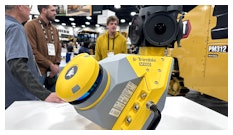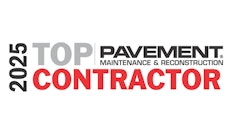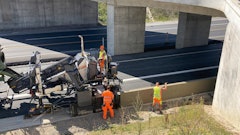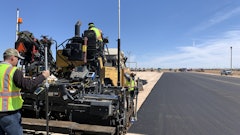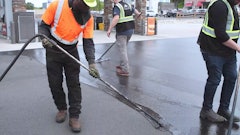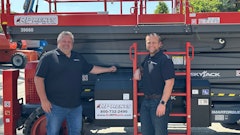
Paving companies across the U.S. shared their workforce challenges in a new study – and the conclusions to attract and retain today’s workers can apply across construction, not just asphalt.
“What are best-in-class companies doing to separate themselves from the pack?” asks Keith Reester, a workforce development expert with in-depth asphalt and aggregates industry experience.
He’ll look at best practices to recruit and retain workers during a presentation at the upcoming World of Asphalt Show & Conference. World of Asphalt will be held March 6-8 in Houston at the George R. Brown Convention Center, with the co-located AGG1 Academy & Expo.
Reester’s session, The New Workforce, is set for Tuesday, March 6 at 2:00 p.m. and is one of the show’s many industry-focused education sessions on topics including people, paving, plants, business management and technology.
Here are five ‘preview’ takeaways:
1. Best-in-class companies treat their human resources efforts as an integral part of their comprehensive corporate strategy.
“We always hear that people are our greatest resource. Why then wouldn’t most companies have a strategic plan for their greatest resource?” Reester asks. “That’s what’s missing in many operations.”
Companies don’t start a project or bid on a contract without a plan in place. Reester says that companies with foresight will recognize that their human resources needs are also a business-critical operation, and invest the attention to detail, creativity and effort needed to succeed.
2. Attract and retain millennials in your workforce.
We know it’s tough to find skilled workers in today’s tight labor market. The millennial generation was identified as a top issue in Reester’s study. He says most millennials show up for work motivated and eager to learn—which is good, because according to his survey of employers in the paving industry, 75 percent of new hires do not have any experience in the field.
“We can’t make the assumption that new hires have the background knowledge or the soft skills to succeed at work, and employers should make sure that workplace expectations especially are communicated to new hires.”
3. Are you challenging job misconceptions & emphasizing your value to ‘quality of life’?
As a cohort, millennials are more likely to be drawn to a job where they feel like they’re making a difference and there’s room to grow.
In order to challenge some of the misconceptions about a career in paving, Reester says that contractors and manufacturers should place a greater emphasis on the importance of infrastructure to society, for example, and offer more opportunities for on-the-job learning and advancement.
4. As an intergenerational cultural and workforce issue, marijuana is too big for employers to ignore.
Marijuana was identified as another top issue in Reester’s study. Even before states and local governments across the country started legalizing marijuana for recreational or medical use, it was affecting companies.
In Reester’s survey of workforce challenges, more than 65 percent of employers he talked to said that marijuana was impacting their workforce.
“You have to be clear about what your expectations are for your employees, and reinforce that up front,” Reester says. “That’s a candid conversation that has to happen ahead of time at a leadership level, but there’s still a generational taboo that’s tied to that.”
5. Remember: your current employees are your top recruiting resource. (Really look at how you’re treating them.).
Reester asked paving companies to break down their new hires by the recruitment methods used. Across the industry, employee referrals outpaced every other category by a rate of 2:1 or greater, even in union shops.
“If we’re not recruiting our own employees to reach out to potential employees on our behalf, we’re really missing an opportunity,” Reester says.
“And on top of that, how we treat our employees, and how our work environment and corporate culture treats them, really reflects on whether those people are good recruiters for us,” he added.
“It was staggering to me that there was a huge chunk (of companies) who just said, ‘Well, we give them the usual benefits,’” Reester says. “If that’s what you’re thinking is going to differentiate you in the marketplace, well, it’s not.”
Learn more about World of Asphalt and register at www.worldofasphalt.com.








